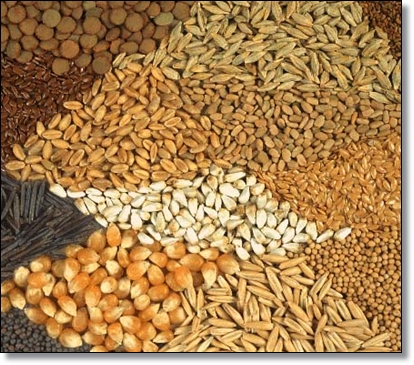New Seeds and Varieties are Reinventing Agriculture

 |
Interventions across West Africa show that the region is re-inventing agriculture, and there is the likelihood that if the interventions are to be sustained, the region will get back its agricultural boom. West Africa is on a pragmatic approach to food security and job creation. With the world food demand expected to grow by at least 70% by the year 2050 and, with sub-Saharan Africa having about 60% of the global land suitable for cultivation, experts are of the opinion that African farmers will lead the subsequent agricultural explosion.
The agricultural initiatives are many. A mango project in Burkina Faso is to get $25 million agriculture grant to connect small farmers to global markets. The grant, according to USAID and the Swedish government, is to help subsistence farmers surmount some of the financial constraints that deter them from becoming commercial farmers. The fund will be administered by the African Development Bank (ADB).
In Côte d’Ivoire, numerous farmers have certification schemes which make their cocoa extra attractive to foreign buyers. Over 80,000 cocoa farmers in Côte d’Ivoire are now taking part in the Rainforest Alliance certification programmes that make the producers utilise environmental management which will aid sustainable production in the long term. Farmers who are certified get linked to cocoa exporters and chocolate companies that fund their training and purchase their product.
Going by the revelation of the Cocoa Barometer, world production of certified cocoa rose between 2009 to 474,000 tons in 2011 and is predicted to rise to 2.2 million tons by the year 2020. Côte d’Ivoire is among the peak of global producers of cocoa which amounts to 35 % global production. Over 900,000 farmers are engaged in the cultivation of cocoa, and it has also led to the sustenance of over 3.5 million livelihoods. In the period 2011-2012, the country produced almost 1.5 million tons. This therefore implies that cocoa farmers are likely to be in boom and will play a major role in the revenue generation of states.
In another development, maize farmers in Benin, Ghana, Mali and Nigeria have gotten new Drought Tolerant Maize for Africa (DTMA) developed to assist maize farmers who live in a drought prone environment. This has the capacity and the likelihood to bring total revival to maize production in Africa. To uphold this initiative, between 2007 and 2010, Nigeria released 18 drought tolerant maize varieties whereas Ghana released 13.
In the same vein, Burkina Faso has introduced two new varieties of cowpea seedlings from the International Institute of Tropical Agriculture. The varieties have the characteristics of early maturity together with high yielding capacity. Cowpea is a vital crop in Burkina Faso; it provides food, fund, and fodder for livestock. Local varieties yield between 400 kg and 600 kg per hectare, whereas the new varieties have the ability to yield 2170Kg/ha. This initiative has the capacity of transforming cowpea production in the country if well supported and sustained.
Cameroon has also released five new improved cassava varieties. According to the government, this will improve food security. The International Institute of Tropical Agriculture, the Programme National de Developement des Racines et Tubercules, the Institute of Agricultural Research for Development, the International Fund for Agricultural Development, and other non-governmental organisations and local farmers are major stakeholders collaborating on this initiative.
These initiatives and the overwhelming acceptance they are receiving show that the decline for agriculture is not because the farmers were not willing to engage in it, but rather due to lack of support from government which made agriculture in Africa less attractive. It is apparent that if agriculture gets its needed support, West Africa is likely to revamp its agriculture. A vibrant agricultural sector will create jobs and income; ensure food security, raw materials and further opening of the economy.
By Audu Liberty Oseni
The author libertydgreat@gmail.com is a Researcher.
